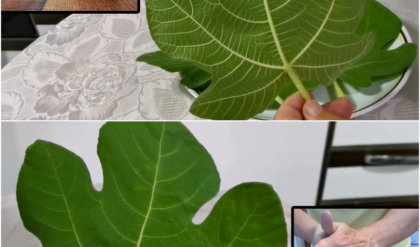
It’s no mystery that music memorabilia is a booming business. The Gibson J-160E acoustic guitar on which John Lennon wrote many early Beatles hits went for $2.5 million at an auction. Bob Dylan’s handwritten lyrics for his iconic 1965 song “Like a Rolling Stone” sold for $2 million. And in the most valuable auction item in hip-hop history — a gold, ruby and diamond crown ring designed and worn by Tupac Shakur — went for over a million last year (to Drake, natch).
The catch? In many if not most such cases, the artist or their estate got nothing: These items ended up in the hands of people who knew how to monetize them, and the profits went to the seller and the auction house, which commonly takes 20-30% of the sale price.
Music superstardom has a lot of ephemera — along with top-value items like the ones above, there are clothes, setlists, scripts, riders, schedules and other items that are either used briefly and discarded, or sit in storage units for years or decades. But how many fans do you see gathered around the front of the stage after a concert, begging the roadies for a broken drumstick or one of the setlists taped to the floor? Some artists have gotten wise to the hustle and refuse to sign autographs, having seen them pop up on eBay — days later and for ludicrous sums — once too often.
Now, one artist is partnering with a new sports-and-music auction house to take that hustle into his own hands: Of course, it’s Snoop Dogg.
The iconic rapper has partnered with the Realest, a memorabilia-authentication and auction company founded by producer and radio host Scott “DJ Skee” Keeney, to auction off such items with his full participation. The offerings range from relatively low-end items like photos, Playstations, autographed riders and production books to autographed TV scripts (of episodes of “The Boondocks” he voiced), platinum discs, master recording tapes (although the copyrights to the music do not come with the tapes), autographed jackets and jerseys — and even a Death Row Records chain in a custom box autographed by Snoop.
(See the auction items here.)
“This is shit that we have, but we didn’t know it was worth something,” Snoop says of the project, called “The Shiznit.”
“The items he is putting up are iconic,” Keeney tells Variety. “Everything from lyrics, awards — like ‘Pimp of the Year’! — unreleased tapes, outfits, sample toys, photos, scripts, concert riders, even a Snoop-authenticated smoked blunt in a crazy display case and ashtray.”
Phase 1 of the auction launches today (May 21) and ends June 2. A preview event is taking place in New York today, with one I Los Angeles on May 29. Items are also being exhibited at various locations across the country.
While there probably aren’t any $2 million Snoop lyric sheets up for auction just yet, this move is notable because the artist is taking control of a process from which they have traditionally been excluded. And in an era when streaming has made most artists’ profit from their recordings almost minimal, it represents a new revenue opportunity that in theory is not much different from merch or meet and greets.
While such authorized auctions have been common in the sports world for years, “Memorabilia has not been a real thing in music,” Keeney says. “Items listed are often either fake or stolen, and hip-hop has been wildly under-represented as well.” He pointed to Operation Bullpen, an FBI investigation into widespread fraud in celebrity autographs and sports memorabilia that resulted 63 arrests and reportedly uncovered more than $100 million in fraud from 1999 through 2006; that operation resulted in a much more-thorough authentication process. Keeney declined to tell Variety what percentage of sales his company retains, but characterizes the arrangement as a partnership.
The company has taken the same authentication protocol used by Major League Baseball, with the stated goal of giving fans items straight from the source. Keeney launched the Realest late in 2023 in beta, running tests with the long-running metal band Megadeth (which saw a guitar used by frontman Dave Mustaine sell for nearly $15,000), University of Michigan football, and the Big Ten basketball conference, as well as items from Latin superstar J Balvin and opera singer Andrea Bocelli. The company recently secured $4.6 million in seed funding in a round led by KB Partners.
According to its press materials, the Realest uses a two-tiered system of authentication: The first layer is witness-based authentication, similar to MLB’s, to certify the memorabilia and establish a connection to its source (an athlete or musician). Afterward, the company uses a hologram sticker and hidden markings — in cooperation with with OpSec, a company specializing in sports apparel security — to give an item the equivalent of a watermark to protect its value.
In order to protect its own integrity, Keeney says the Realest has been split into two separate business entities: TRuEST handles security and employs a network of authenticators, while the Realest handles promotion and sales. The combined company now has 20 full-time employees and roughly 50 contracted authenticators.
“Snoop is passionate about helping introduce an entirely new revenue stream for artists that is not just a typical ‘estate’ or garage-type sale of items, but from documented and authenticated ephemera,” Keeney says. “Items like setlists, stage equipment, outfits, signage, and more are things that fans desire but can’t find. It helps to build a new revenue stream for artists.”





